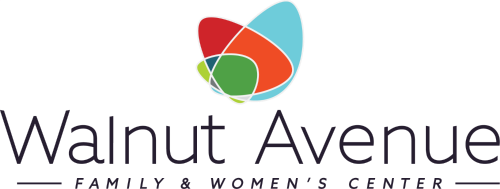
UCSC Internships
Students from the University of California, Santa Cruz, comprise a large proportion of our certified advocates for survivors of domestic violence. (Several staff members are UCSC alumni themselves!)
UCSC’s proximity to Walnut Avenue, which is located on the corner of Walnut and Chestnut Streets, makes our location easier to access by public transportation from campus.
Walnut Avenue welcomes interns of all genders, orientations, and other intersections of identity and lived experiences. There are no requirements regarding majors, minors, or other areas of education.
If you’re a UCSC student interested in interning with Walnut Avenue for academic credit, keep on reading!
If you’re a student but you’re not looking for academic credit, then you don’t need to worry about extra guidelines or paperwork.
Either way, all volunteers begin the same way: you can review the general volunteer information page.
Setting Up an Internship
First, make sure you’ve read the general volunteer online orientation, including the basic eligibility requirements.
Next, look to see if your class, program, or department is described below. If it is, then you will find more information tailored to the specific requirements of your program.
Reach out to the staff contact by email to discuss your academic situation. Every class and program has unique requirements: you will need to speak with the staff contact to determine if Walnut Avenue can fulfill those requirements.
In your email, please include your class or program requirements if your program is not already listed below. Your professor may have provided a handout that lists the class or program requirements, such as what activities are or are not allowed, expected learning outcomes, and/or end-of-term evaluation requirements. The staff person will need this information to determine whether or not Walnut Avenue can accommodate you as an academic intern.
If Walnut Avenue is able to accommodate you, then the staff person will provide you with next steps!
Staff Contact:
Marjorie Coffey (they/them)
mcoffey@wafwc.org
Email is preferred.
Walnut Avenue already has a relationship with the UCSC programs listed below and has been pre-approved as a direct service/practicum site.
If you do not see your program listed below, you may contact the volunteer coordinator to discuss how you might seek out academic credit for your internship service.
-
Number of interns allowed at one time: no limit
Psychology Field Study interns gain experience in peer counseling and crisis intervention through direct service as a hotline advocate. To do so, however, you must first complete the domestic violence certification training.
We offer the training for volunteers twice a year beginning April and October, so you will need to plan ahead to complete the training before you can begin your six months of Field Study. For example, if you plan to start Field Study in Winter Quarter, you should complete the Fall training in the prior quarter.
A weekly shift on our hotline plus the once-monthly supervisory meeting is usually enough to meet your quota of hours, but if not, then you’re invited to participate in our other volunteer programs to expand your experience.
Volunteer advocates are asked to commit to 12 months of service. This means that you would be expected to continue as a hotline advocate for an additional six months, even after your Field Study program has ended, for a total of 12 months.
Once you complete your 12 months in good standing (i.e. you’ve upheld all the requirements of the program), then you may use Walnut Avenue as a professional reference for future employment or academic applications upon request. The volunteer code of conduct and the handbook, which explains what it means to be in ‘good standing’ in addition to other policies, are available on our volunteer page.
Getting Started as a Psychology Field Study Intern
Review the overview of volunteer positions and the online volunteer orientation;
Register yourself for either the Spring or Fall DV training (instructions are provided on the orientation page);
Contact the volunteer coordinator, Marjorie, at mcoffey@wafwc.org to discuss your intent to volunteer as a Psychology Field Study intern;
Be sure to attend one of the Info Night sessions prior to the start of the seasonal training you registered for;
Complete the 40+ hour DV training and earn your certification;
Begin your 12 months of direct service!
-
Number of interns allowed at one time: 1
Given the time requirements of the Community Studies Field Study program, Walnut Avenue may not always be able to accommodate an intern depending on staff availability for supervision and the services that Walnut Avenue is offering at the time.A Community Studies internship typically looks like the following:
Completing the domestic violence certification training
Taking at least one weekly shift on the hotline (some interns may take two hotline shifts each week to help meet their hour quota) and attending the monthly supervisory meetings
Choosing additional programs based on personal interest and program availability:
Teen Group, classroom workshop facilitation, and/or other youth service development or implementation
Legal advocacy
Space for Change transformative justice advocacy
Community education projects
Getting Started as a Community Studies Field Study Intern
Review the overview of volunteer positions and the online volunteer orientation;
Register yourself for either the Spring or Fall DV training (instructions are provided on the orientation page);
Contact the volunteer coordinator, Marjorie, at mcoffey@wafwc.org to discuss your intent to volunteer as a Community Studies Field Study intern;
Be sure to attend one of the Info Night sessions prior to the start of the seasonal training you registered for;
Complete the 40+ hour DV training and earn your certification;
Begin your 12 months of direct service!

